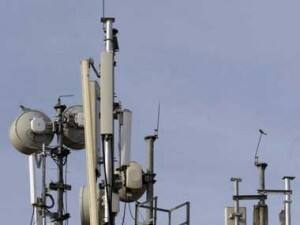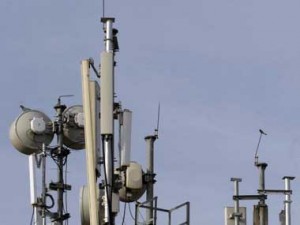New Delhi: The government has made more money than it dreamed of from spectrum auctions, at least two big telecom companies have a clearly defined 4G map now to take on big daddy Reliance Industries. And Idea Cellular is the surprise new entrant in Delhi circle with the lucrative 900 mhz band.
The auction, which ended on the 10th day today, managed to generate Rs 61,162 crore for the government which is quite close to its revenues from the 3G auctions of 2010. Since companies have the option of paying only a third of their bod amounts immediately, the government will get at least Rs 16,000 crore this fiscal from the auctions, well above its own target of a little over Rs 11,000 crore. So for the government, these auctions have been a roaring success.
[caption id=“attachment_76326” align=“alignleft” width=“380”]
 Spectrum sale. Reuters[/caption]
Spectrum sale. Reuters[/caption]
For telcos though, they have been a mixed bag.
Let’s look at Reliance Jio Infocomm, the telco everyone was afraid of. Well, Reliance probably enjoyed itself by participating in the bidding for 900 mhz spectrum in all three circles (Delhi, Mumbai and Kolkata) but decided to buy not even one mhz of it. Finally, the 900 mhz spectrum was bought by the three incumbent telcos Bharti, Idea and Vodafone only.
It is a smart strategy by Reliance for sure but it also seems to be a strategic move by Idea to enter Delhi circle by buying up 5 mhz. In Delhi, incumbent Bharti had to let go of 2 mhz and Vodafone let go of 3 mhz of this precious spectrum. All this was taken by Idea. So now, Idea can easily nibble on the 3G traffic of Bharti and Vodafone in Delhi.
What did Reliance do as a strategy? It concentrated on buying 1800 mhz spectrum because it already has 4G spectrum in the 2300 mhz band in all of India’s 22 circles. So Reliance is now stronger than ever in 4G and could be looking for high speed data and voice services roll out soon. And it managed to blunt some competitive edge by driving up prices for others in 900mhz.
Bharti also played strategically. Though it lost 900 mhz spectrum in Delhi to Idea, it has entered Mumbai by buying up 5 mhz of this scarce spectrum. What does this convey? Bharti has been in talks to buy out Loop Mobile’s 900 mhz spectrum holding in Mumbai and now, it is possible that that these talks will become more important. If, after acquisition of Loop, Bharti gets a hold on 10 mhz of 900 mhz spectrum in Mumbai, it will become a worthy rival to Vodafone which has raised its 900 mhz holding here from 8 to 11 mhz. But in Delhi, Bharti’s capex will have to increase substantially because now the more efficient 900 mhz spectrum band will have to be replaced by less efficient 1800 mhz spectrum.
Among smaller players, Uninor has acquired additional spectrum in the 1800 MHz band in four of its six existing circles-UP East, UP West, Bihar and Jharkhand and Andhra Pradesh-and in the new circle of Assam. Of all the telcos, Uninor is the only one which today upheld what Telecom Minister Kapil Sibal’s views on stable tariffs.
“It is critical that mobile tariffs remain affordable for the mass market after the auctions. With its auction strategy, Uninor has ensured that it can continue to offer the most affordable tariffs in each of its seven circles while maintaining a healthy business case. We have now secured a spectrum platform for continuing growth and profitability in each of our circles,” said Morten Karlsen Sorby, nominated CEO of Uninor.
Regarding investments, between Bharti and Vodafone, spectrum invetsments have already crossed Rs 38,130 crore. Uninor will spend another Rs 844.7 crore. There was no information from other players, including Reliance Jio, of how much investments have been made by each. Eight telcos participated in these auctions.
Meanwhile, Sibal has put the onus of improving telecom services and keeping tariffs unchanged on telcos. Since the auctions saw unprecedented price increase in some circles, analysts are already warning of tariff hikes ahead as cash strapped telecom companies are expected to struggle with debt piles. But the minister is already cautioning telcos against this.
Speaking right after the spectrum auctions concluded, he said, “This auction has been successful but it will be really successful only when we are able to provide efficient services at relatively affordable prices to consumers. We hope services will remain efficient and tariffs remain affordable.”
Sibal’s warning is both timely and pertinent. Enough spectrum was offered in the 1800 mhz band in these auctions so telcos now cannot turn around and say they drove up prices just to corner precious airwaves and sustain their business models.
Sibal rightly said that instead of telcos worrying about how much the spectrum payments will stretch their balance sheets, they should look at these payments as being made for airwaves for the next 20 years - and then they may find the payments justified.
)